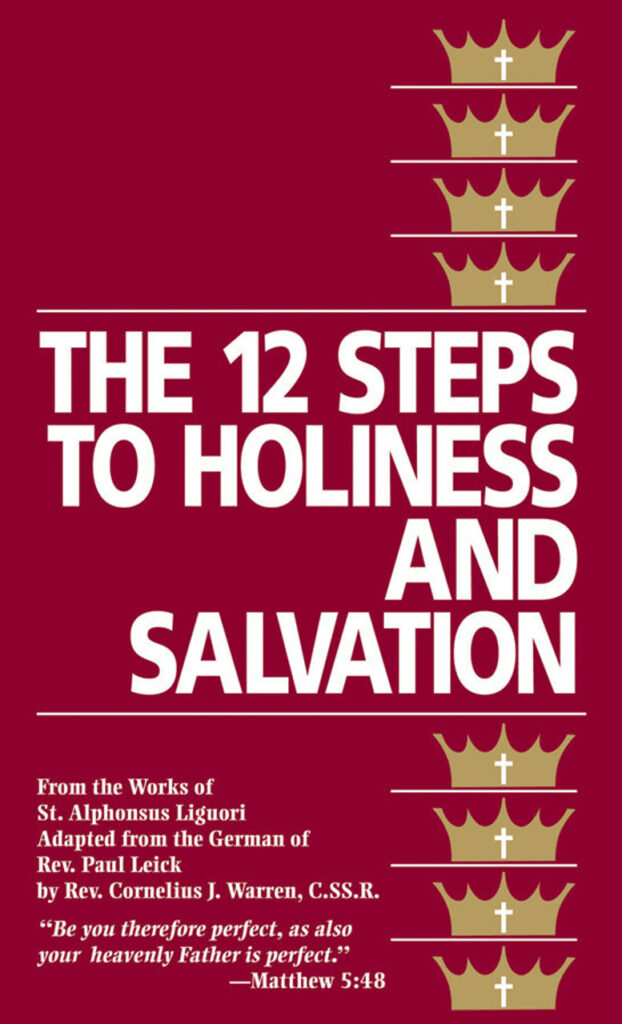Humility is essential for salvation. The saints proclaim humility as the Virtue of virtues and the foundation upon which all other virtues are built. Our Lord Himself taught us the necessity of a humble heart, “Learn from me for I am meek and humble of heart.” (Matt. 11:29).
THE FOUNDATION OF VIRTUES
Humility is called by the saints the foundation and safeguard of all the virtues. If it is not the most prominent among the virtues, it occupies, according to St. Thomas, the first place as the foundation of the rest. In the erection of a building, the basement comes before the walls and pillars, even though the latter be of gold. And so in the spiritual life humility must precede everything else in order to banish pride, to which God is so opposed. He, therefore, who endeavors to acquire the other virtues without humility, says St. Gregory, is scattering dust before the wind.
The virtue of humility was little known and less loved on earth; indeed, it was thoroughly despised. Pride reigned everywhere, for it was an unfortunate inheritance of the human race bequeathed to his posterity by Adam. The Son of God descended from Heaven to teach man by word and example the value of humility, and with this end in view He went so far as to “empty himself, taking the form of a servant, being made in the likeness of men, and in habit found as a man. He humbled himself . . . even to the death of the cross.” (Phil. 2:7). His first appearance on earth was in the humble stable of Bethlehem; the greater portion of His mortal life was spent in humble retirement at Nazareth. He departed this life, humbled and despised, on the summit of Mt. Calvary; and He calls out to each one of us: “I have given you an example that as I have done, so you do also.” ( John 13:15). By this He means to say: “My dear children, I have endured all this humiliation and contempt that you might follow My example.” With regard to the humility of Jesus Christ, St. Augustine says: “If this medicine does not cure us of pride, I know not what other remedy can do so.”
PRIDE AN ABOMINATION TO THE LORD
“Every proud man is an abomination to the Lord,” says the Holy Ghost. (Prov. 16:5). The proud man is a thief because he appropriates what belongs to God from whom, as St. Paul says, he has received everything.
If a horse were decked with gorgeous trappings would it—supposing it were able to do so—pride itself on having such fine adornments, knowing that at a moment’s notice its master could take them away? The proud man is guilty of falsehood, for all the goods that he possesses both in the order of nature and grace are the gifts of God. “By the grace of God I am what I am,” says the Apostle (1 Cor. 15:10), for “we are not sufficient to think anything of ourselves, as of ourselves, but our sufficiency is from God.” (2 Cor. 3:5).
“Humble yourself,” says St. Augustine, “and God will descend to unite Himself with you; but if you are proud He will depart from you.” The Royal Prophet had said the same thing long before: God looks upon the humble with loving eyes, but the proud He sees from afar. When the rebel angels grew proud, God drove them from His sight and cast them into the abyss, for God’s Word must be fulfilled: “Whosoever shall exalt himself, shall be humbled.” (Matt. 23:12).
St. Peter Damian relates that a certain proud man once heard these words of Our Lord read in the Gospel at Holy Mass. “That is not true,” he said, “for if I humbled myself I would lose my possessions and the respect of my fellowmen.” Now what happened? He fought a duel in defense of his property, and his antagonist, striking him in the mouth with his weapon, pierced his blasphemous tongue and stretched him dead on the ground.
The Lord has promised to hear all who call upon Him: “Everyone that asketh, receiveth.” (Matt. 7:8). But to the proud man God will not listen. “God resisteth the proud,” says St. James, “and giveth grace to the humble.” ( Jas. 4:6). Yes, God hastens to open His hand and bestow upon the humble what they desire. “Lord, give me the treasure of humility,” prayed St. Augustine. Humility is called a treasure because the Lord sees to it that the humble abound in good things. When man’s heart is full of himself, there is no room for God’s gifts. Man must therefore, as it were, be emptied of himself by the knowledge of his own nothingness. “He that is mighty hath done great things to me” said the Blessed Virgin Mary, “because he hath regarded the humility of his handmaid” (Luke 1:48); that is to say, He hath considered the knowledge I have of my own nothingness.
A SOURCE OF BLESSINGS
St. Teresa tells us that she received the greatest graces from God when she humbled herself most profoundly in His presence. “The prayer of him that humbleth himself shall pierce the clouds; and he will not depart till the most High behold.” (Ecclus. 35:21). St. Joseph Calasanctius used to say: “If you desire to be holy, be humble; if you desire to be very holy, be very humble.” This advice was given by a devout man to St. Francis Borgia before he had entered the religious life: “If you want to become a saint, think of your own misery and wretchedness.” Following this advice, the Saint spent two hours every day trying to obtain a knowledge and contempt of himself. “As pride,” says St. Gregory, “is the most evident characteristic of the reprobate, humility is the clearest sign of the elect.” When St. Anthony, the hermit, saw the world full of the snares of the devil, he cried out: “Who can ever escape so many dangers?” He heard a voice say: “Anthony, humility alone walks securely; he who goes with head bowed down, need not fear to fall into these snares.” In a word, if we do not become children—not of course in age, but in humility—we cannot, as our Saviour said, enter the Kingdom of Heaven. “Learn of me, for I am meek, and humble of heart: and you shall find rest to your souls.” (Matt. 11:29).
ooo
This article is taken from a chapter in The 12 Steps to Holiness and Salvation by Saint Alphonsus Liguori which is available from TAN Books.









